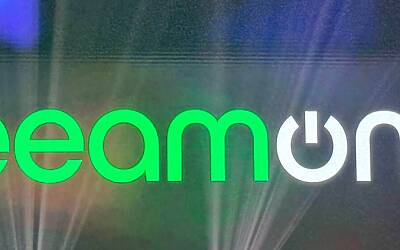The Crucial Role of Third-Party Audits in Assessing BCDR and Veeam Environments
In an era where businesses increasingly rely on digital infrastructure and data management, ensuring the robustness and reliability of systems has become paramount. Two critical components that contribute to this reliability are Business Continuity and Disaster Recovery (BCDR) planning and the effective management of Veeam environments. However, without an independent third-party audit, companies may be exposing themselves to potential risks. In this blog post, we will explore the importance of using third-party auditors to assess BCDR and Veeam environments, emphasizing the necessity of avoiding biases tied to specific vendors.
Unbiased Evaluation:
When it comes to evaluating BCDR and Veeam environments, objectivity is of utmost importance. Having an external auditor, independent of any particular vendor, ensures an unbiased assessment of the systems and processes in place. Such an audit provides an objective view of the organization’s readiness to handle disasters, identify potential vulnerabilities, and assess the adequacy of the disaster recovery plans.
No Kickbacks or Vendor Payment Agreements:
It is crucial that a third-party auditor does not have any monetary compensation from various vendors because these financial arrangements can introduce biases and compromise the integrity of the audit process. When an auditor is tied to specific vendors through kickbacks or payment agreements, their recommendations and assessments may be influenced by their financial interests rather than focusing solely on the best interests of the company being audited.
This can lead to a skewed evaluation of the BCDR and Veeam environments, potentially overlooking critical vulnerabilities or favoring certain vendors’ products or services. By ensuring independence from vendor affiliations, the audit remains objective, trustworthy, and genuinely focused on providing unbiased insights and recommendations to enhance the organization’s resilience and security.
Identifying Blind Spots:
An external auditor brings fresh perspectives and expertise to the evaluation process. They possess the necessary experience and knowledge to identify potential blind spots that internal teams may overlook. These auditors bring a critical eye to the assessment, enabling them to pinpoint vulnerabilities, gaps in processes, and areas for improvement that might otherwise go unnoticed.
Industry Best Practices:
A reputable third-party auditor is well-versed in industry best practices, regulatory standards, and compliance requirements. By leveraging their expertise, organizations can benefit from insights into emerging trends, recommended frameworks, and benchmarks for BCDR and Veeam environments. Auditors can provide guidance on adopting industry-leading approaches and ensure the company’s practices align with recognized standards.
Risk Mitigation:
A thorough audit by an independent third party helps organizations identify and mitigate risks associated with their BCDR and Veeam environments. By uncovering potential vulnerabilities, the audit enables companies to take proactive measures to minimize the impact of disruptions. Auditors can recommend improvements to recovery procedures, backup strategies, and system redundancy, bolstering the organization’s ability to bounce back from adverse events.
Compliance and Governance:
Compliance requirements and governance frameworks are critical considerations in today’s business landscape. Third-party audits play a vital role in assessing whether an organization adheres to these standards. By conducting independent audits, businesses can validate their compliance efforts, identify areas of non-compliance, and implement corrective actions to ensure alignment with regulatory mandates and industry guidelines.
Enhanced Reputation and Stakeholder Confidence:
Demonstrating a commitment to the security, resilience, and effective management of BCDR and Veeam environments enhances an organization’s reputation and instills confidence in stakeholders. By engaging third-party auditors, companies can provide tangible evidence of their dedication to maintaining high standards and securing their digital assets. This assurance fosters trust among clients, partners, and investors, ultimately leading to stronger relationships and improved business opportunities.
Conclusion:
The importance of using third-party audits to assess a company’s BCDR and Veeam environments cannot be overstated. By engaging independent auditors who are not tied to specific vendors, organizations gain valuable insights, identify vulnerabilities, and improve their overall resilience. Leveraging unbiased evaluations, industry expertise, and compliance guidance, companies can proactively address risks, enhance their reputation, and build trust with stakeholders. As technology continues to evolve, a commitment to thorough auditing remains a critical component of effective BCDR and Veeam environment management.
When you choose Different Dev for your independent auditor, you can be assured that there are no secret agreements or financial compensation that could affect your audit and gap analysis report. Contact us today for your Veeam Optimization Review today.




